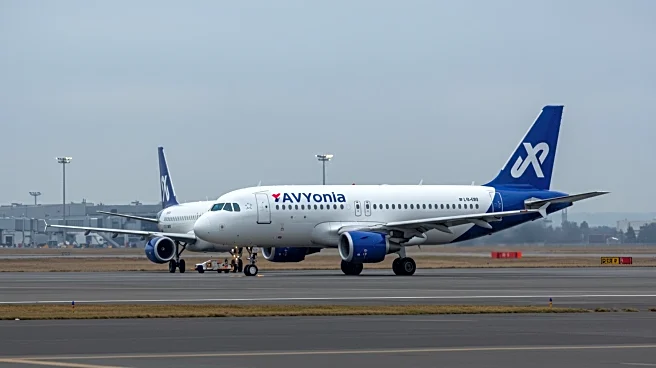What's Happening?
JetBlue Airways' proposal to acquire Spirit Airlines was blocked by a federal judge in early 2024. The decision was based on antitrust concerns, as the merger was deemed likely to reduce competition and increase airfares. Spirit Airlines, known for its low-cost model, has historically pressured other airlines to lower their prices. The Justice Department argued successfully that the merger would negatively impact consumers by reducing competition. Spirit Airlines has been struggling financially, with substantial losses and a warning of potential business closure within a year.
Why It's Important?
The blocking of the merger is significant for the airline industry and consumers. Spirit Airlines has played a crucial role in keeping airfares low, benefiting travelers across the U.S. If Spirit were to cease operations or be acquired by another airline, it could lead to higher airfares. The decision reflects the government's stance on maintaining competition in the airline industry, which is vital for consumer choice and affordability. The ruling also highlights the ongoing financial challenges faced by low-cost carriers post-pandemic.
What's Next?
Spirit Airlines is exploring options to avoid closure, including potential mergers with other carriers. However, any merger would face antitrust scrutiny similar to the JetBlue proposal. The airline industry may see shifts in pricing strategies and competition dynamics as Spirit navigates its financial challenges. Stakeholders, including consumers and other airlines, will be closely monitoring Spirit's next moves and the broader implications for air travel costs.









